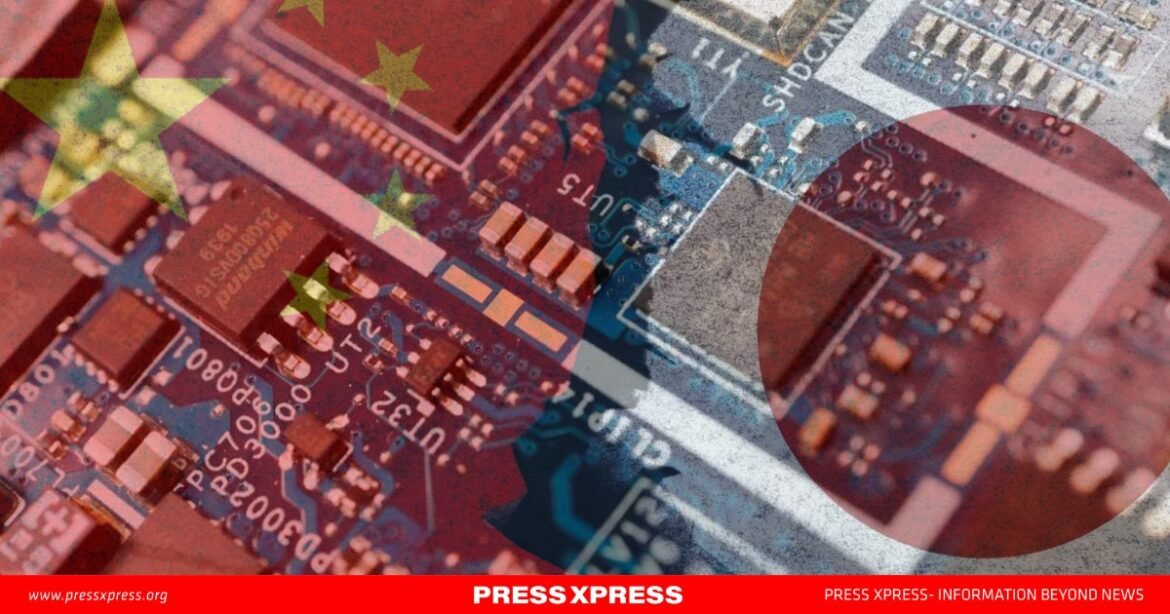Tensions in the global semiconductor industry are escalating as China warns Japan that its proposed export restrictions on advanced chips could have severe consequences for global supply chains. The move, seen as part of a broader U.S.-led effort to curb China’s technological rise, threatens to disrupt trade between two of the world’s largest economies and further fragment an already fragile global tech landscape.
Japan’s Chip Export Controls: A Strategic Shift
Japan, a key player in the semiconductor supply chain, has announced plans to tighten export restrictions on chip-related materials and equipment. The restrictions mirror measures imposed by the United States and the Netherlands, aimed at limiting China’s ability to develop advanced semiconductors.
The Japanese Ministry of Economy, Trade, and Industry (METI) has introduced stricter licensing requirements for 23 types of chipmaking technology, including critical components such as photolithography machines. While Japan has not explicitly named China as the target, it is widely understood that these measures are part of an effort to align with Washington’s policy of restricting Beijing’s access to advanced technology.
China’s Ministry of Commerce (MOC) strongly condemned the move, warning that Japan’s decision could destabilize the global semiconductor industry. “For some time, certain countries have been stretching the concept of national security and abusing export control measures to impose sanctions aimed at suppressing China’s semiconductor and other industries,” an MOC spokesperson said.
China’s Response: Retaliation on the Horizon?
China has hinted at possible retaliatory measures, though it has not yet specified what form they might take. In the past, Beijing has responded to similar restrictions by imposing its own export curbs on key minerals, such as gallium and germanium, which are essential for semiconductor production.
Should China choose to retaliate against Japan, it could target industries where Japan is highly dependent on Chinese imports. For example, Japan sources significant amounts of rare earth metals from China, which are crucial for manufacturing electric vehicles and high-tech products. Any disruption to this supply chain could have broader economic consequences for Japanese manufacturers.
Additionally, China could take a more strategic approach by intensifying its push for semiconductor self-sufficiency. Beijing has already been investing heavily in domestic chip production through its “Made in China 2025” initiative. Despite significant challenges, including technological bottlenecks and reliance on foreign intellectual property, Chinese firms like SMIC (Semiconductor Manufacturing International Corporation) are making gradual progress.
The Broader Impact on Global Supply Chains
The semiconductor industry is one of the most globally interconnected sectors, with different countries specializing in various parts of the production process. Japan is a major supplier of advanced chipmaking equipment, while China is the world’s largest consumer of semiconductors, accounting for over 30% of global demand.
By restricting semiconductor exports to China, Japan risks not only harming Chinese firms but also disrupting its own semiconductor industry. Japanese chipmakers, such as Tokyo Electron and Nikon, generate a significant portion of their revenue from Chinese clients. If China shifts its supply chain away from Japan, these firms could face long-term revenue losses.
Beyond Japan and China, the ripple effects of this dispute could extend to global tech giants such as Apple, Samsung, and Intel. Many of these companies rely on Chinese manufacturing facilities and Japanese semiconductor components to produce their products. Any disruption in this supply chain could lead to increased production costs and delays in product rollouts.
Geopolitical Dimensions: The U.S. Factor
Japan’s decision aligns with broader U.S. efforts to curb China’s technological advancements. Over the past two years, Washington has imposed strict export controls on advanced semiconductor technology, preventing American firms from supplying high-end chips and chipmaking equipment to China. The U.S. has also pressured key allies, including Japan and the Netherlands, to adopt similar measures.
The U.S. argues that these restrictions are necessary to prevent China from developing military-grade artificial intelligence and advanced computing systems that could be used for surveillance and defense purposes. However, critics argue that these measures are accelerating the fragmentation of global supply chains and increasing the risk of economic decoupling between China and the West.
From a strategic perspective, Japan’s compliance with U.S. pressure could strengthen its security ties with Washington but may come at an economic cost. China remains Japan’s largest trading partner, and prolonged economic tensions could hurt Japanese exports in multiple sectors, not just semiconductors.
China’s Economic Slowdown and ASEAN’s Response
China’s warning to Japan comes at a time when its economy is experiencing a slowdown. With declining consumer confidence, a struggling real estate sector, and rising local government debt, Beijing is facing mounting economic pressures. As China’s economy slows, its influence on trade and investment flows in the Asia-Pacific region is also shifting.
The Association of Southeast Asian Nations (ASEAN), which has traditionally benefited from strong trade ties with China, is now exploring ways to diversify its economic partnerships. While China remains ASEAN’s largest trade partner, countries like Vietnam, Indonesia, and Malaysia are increasing trade and investment cooperation with Western nations to reduce their dependence on Beijing.
For example, Vietnam has strengthened its ties with the United States, elevating its diplomatic relationship to a “comprehensive strategic partnership” in 2023. Similarly, Indonesia is seeking to join the Comprehensive and Progressive Agreement for Trans-Pacific Partnership (CPTPP), a move that would give it better market access to economies like Japan, Canada, and Australia.
Despite these shifts, a complete decoupling from China is unlikely. Many ASEAN economies still rely on Chinese infrastructure investments through the Belt and Road Initiative (BRI), and Chinese tourists continue to be a major source of revenue for the region.


